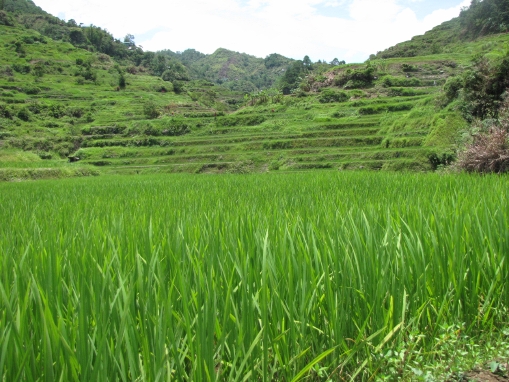COVER STORY
(Page 2 of 6)The findings are key, for they point to a strategy for preventing future global food shortages: exploiting the genetic variation found in these ancestors of cultivated Asian and African rice to breed entirely new varieties that address a litany of looming challenges.
McCouch, a Cornell professor and a world expert in rice genetics, could not do this innovative work without the aid of plant physiologists, geneticists, computational biologists, agronomists and engineers. Collaborating across disciplines, they play a role in developing and making publicly available genomic technologies and knowledge that breeders can use to accelerate their work of developing rice with increased yields un

A view of the 2,000-year-old Banaue rice terraces in the Philippines, one of the destinations visited annually by Cornell students enrolled in the Rice: Research to Production summer short course at the International Rice Research Institute.
This is a major example of how universities like Cornell are turning to their highly talented faculty to apply their expertise across many disciplines to help solve some of the world's most serious problems in energy, food production, the environment, human health and poverty.
"We have a university that allows us to work effectively across disciplines and recruit some of the most talented people in the world," says McCouch. "We recruit great talent and provide a fertile environment for people to work together on novel applications that can make a difference in the real world, even in a rice paddy. And that kind of innovative environment is something that in many parts of the world you don't have access to."
Nor does this pipeline end at Cornell. To supply rice breeders with modern tools and the knowledge needed to discover genes in exotic rice collections that will confer desirable traits, McCouch partners with researchers and breeders in public, governmental agencies, private companies and universities both domestically and in rice-growing countries in Asia, Africa and South America.
<<View entire story as one page>>